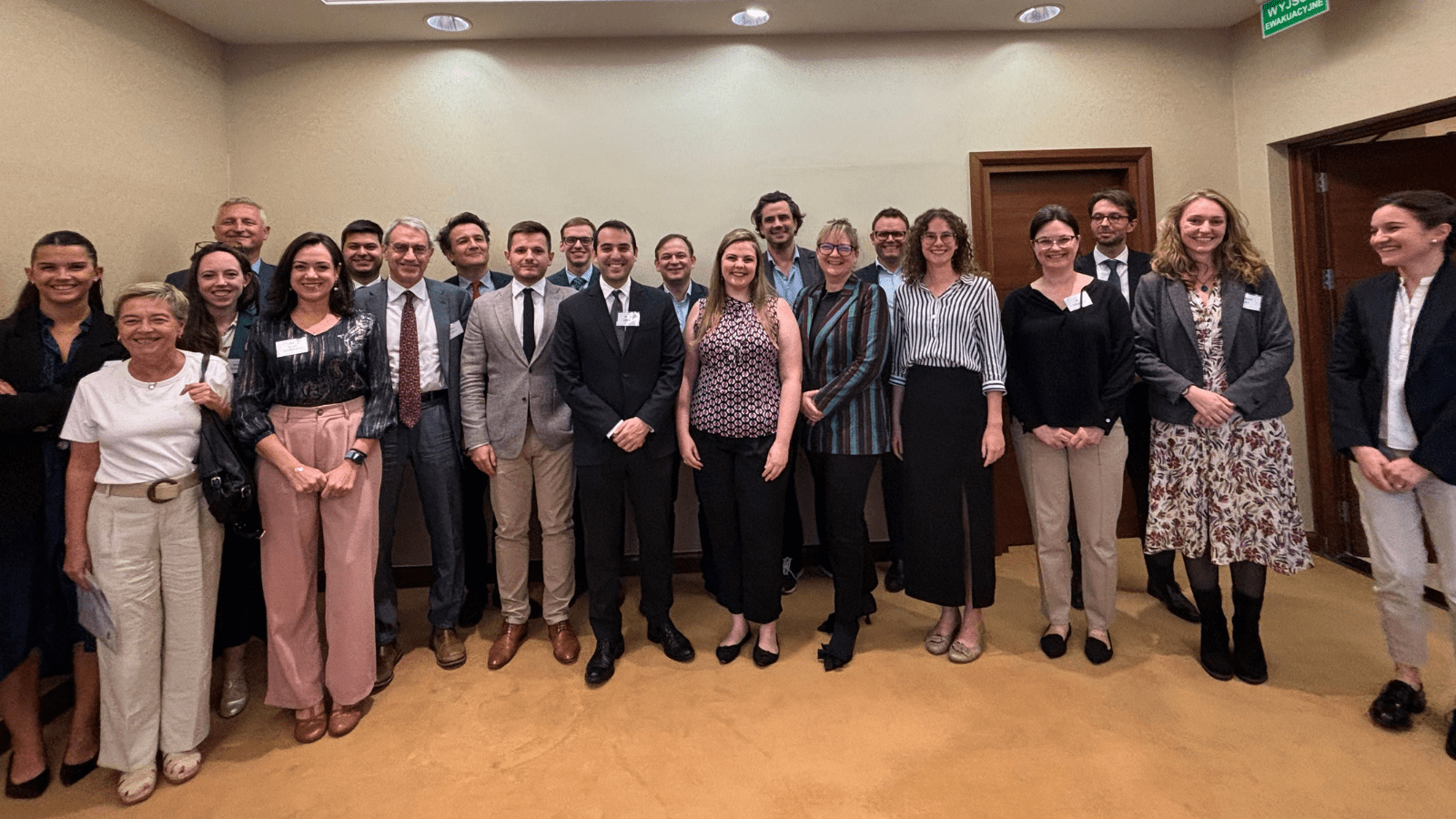By BASIC Policy Fellow Dr Lisa Vickers
On September 19, BASIC’s Risk Reduction Programme hosted a workshop entitled ‘Shaping a Sustainable Security Architecture for Europe’ in Warsaw. This workshop was held to fulfil the aims of BASIC’s ‘Turning Point: Realising a Sustainable Security Architecture for Europe’ project – referred to as ‘Rethinking European Security’. This project is generously funded by the Polden-Puckham Charitable Foundation, and its implementation is assisted by Rethinking Security.
The project was designed against the backdrop of a breakdown of post-Cold War diplomacy, increased geopolitical competition, and a global climate crisis. These occurrences necessitate a new European security architecture that accounts for a range of security threats, including those that are traditional-, energy-, environmental-, and human-based. In other words, it is insufficient for states to focus solely on traditional (or hard) security without giving consideration to broader security aspects.
Throughout this year and next, five track 1.5 regional workshops have been taking, and will continue to take place, that include government officials and experts from more than 30 European, OSCE member states. Talks are driven by research-based working papers, produced by BASIC, that highlight the above issues.
Recommendations from these workshops will be finalised in a report presented at a final conference in Vienna in 2025, and subsequently presented to institutions and organisations across Europe. The September workshop was third in the series and brought together twenty track 1.5 participants from the Czech Republic, Poland, France, Croatia, Spain, Portugal, and Italy. Participants were selected for their traditional, environmental, energy, and/or human securities expertise. They came from a range of backgrounds, including academia, think tanks, and ministries of foreign affairs. Participants were researchers, professors, policy officers, analysts, and deputy directors. Warsaw was selected for its standing as a hub in Central Europe and for its accessibility to states targeted for participation in this regional workshop.
The workshops aim to bring together experts embedded in typically siloed fields and expose them to concepts relating to traditional, environmental, energy, and human securities. The globe’s crises are interlinked and multi-dimensional, and it is crucial for experts to be inspired to new approaches and ways of thinking in order to meet these challenges. Participants at the Warsaw workshop agreed that Europe must contend with a variety of security threats and participants therefore sought to learn from each other’s perspectives.
Participants of the Warsaw workshop shared some common views. All agreed that Europe must strengthen itself militarily, especially when it is uncertain if the US will continue to provide the same level of military support to Europe that it has in recent years. This is due to the uncertain outcome of the US’s upcoming elections, and the US’s focus pivoting to other parts of the world such as the Indo Pacific region.
Participants also agreed that more must be done to unite European societies and to encourage citizens to trust in their governments and leaders. Simultaneously, they argued that European states must find more common ground with one another and be consistent in their approaches to concepts such as clean energy. The workshop reasoned that these actions would contribute to greater societal preparedness, especially in regard to climate change, which amplifies threats to security, including through displacement, loss of food sources, and disruption to energy sources.
Workshop participants held diverging views as well, most notably regarding Russia’s role in a future European security framework. Some participants argued that there is no place for Russia in such a framework. These participants shared their beliefs that there is not a shared normative framework between Russia and the rest of Europe that would enable cooperation. Other participants believed that Russia would have a place in a future European security architecture, particularly within future arms control agreements.
BASIC’s Risk Reduction Programme is grateful to the participants of the Warsaw workshop for their insightful remarks and active participation. We will continue our work to analyse the themes and perspectives shared in the discussions, which will inform our final report. For more updates on our work, please subscribe to our forthcoming newsletter.

